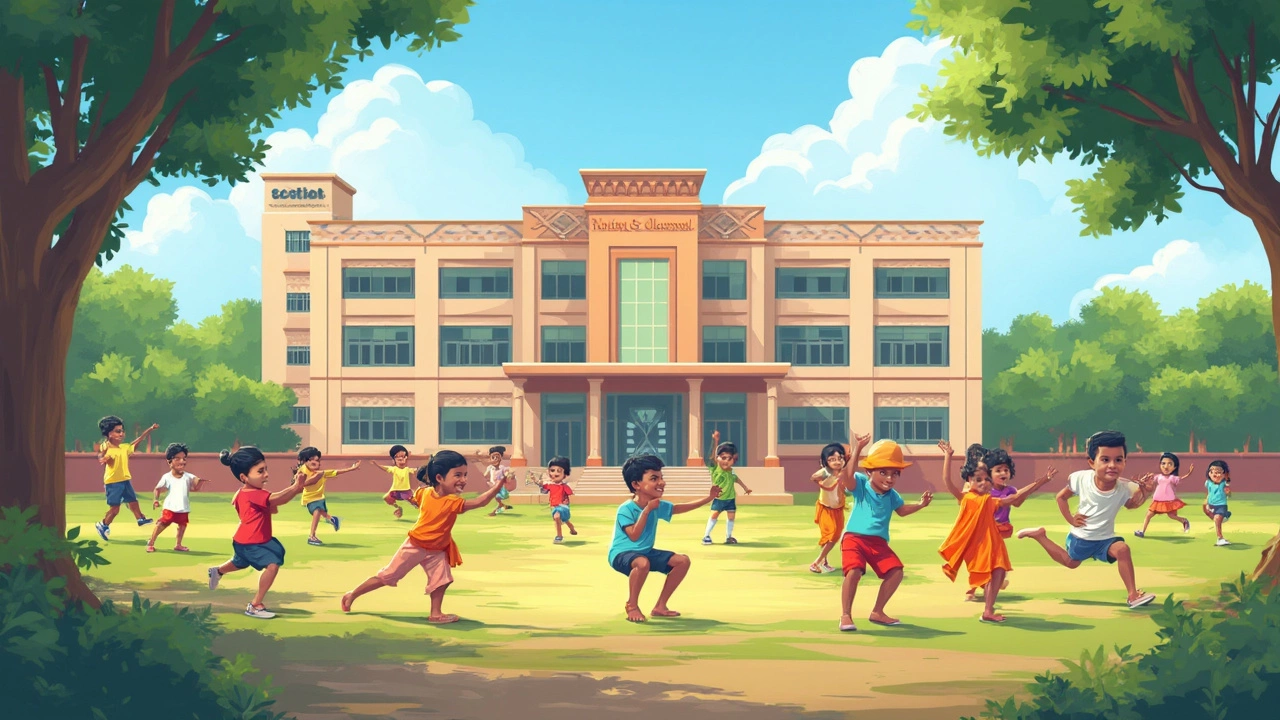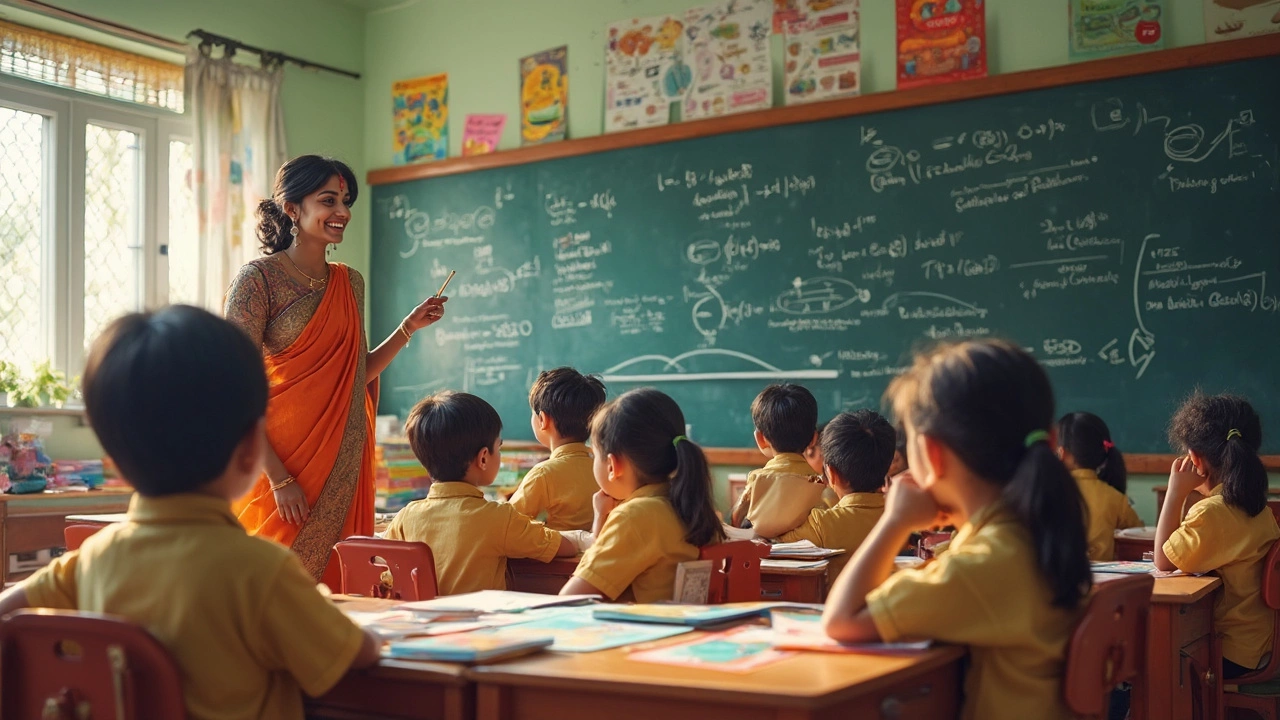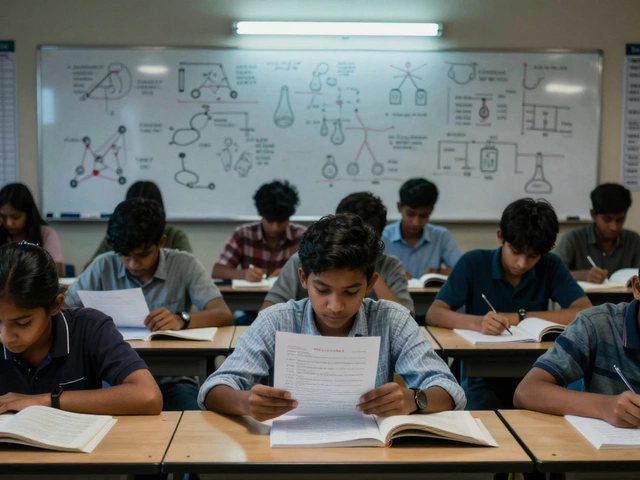Alright, so let’s jump into the world of CBSE schools in India. If you've heard the term but aren't quite sure what it stands for, CBSE means the 'Central Board of Secondary Education.' It's a big deal educational board in India that sets a uniform curriculum for its schools. Imagine being a student in, say, Mumbai or Delhi and learning the same things; that’s the CBSE standard for you!
Why does this matter? Well, consistency and standardization make it easier for students who might relocate or pursue higher education in different states. The curriculum focuses a lot on a mix of theory and practical knowledge, helping kids not just cram stuff but actually understand the 'why' behind things.
Trust me, CBSE schools aren’t just about math and science grind. They’ve got a strong focus on holistic development. So, you'll see students diving into sports, arts, and creative activities. It's not just about churning out bookworms; it's about preparing well-rounded individuals who can handle real-world challenges.
What is CBSE?
The CBSE or Central Board of Secondary Education is one of India’s most prominent educational boards. Established in 1962, it's like the backbone of school education across various states in India. The goal? To offer a uniform education system that brings students from all backgrounds onto a common platform.
Now, you might be wondering why it’s such a big deal. Well, CBSE sets a standardized curriculum that's followed by over 21,000 schools in India and about 220 schools in 25 foreign countries. This makes it relatively easier for families that move around to ensure their kids get a consistent education.
While the curriculum is uniform, it's designed not just to focus on rote learning but to encourage students to dig deeper into concepts. Subjects range from the usual science and math to humanities and languages, ensuring a broad spectrum is covered.
One of the key features of CBSE schools is their emphasis on national-level entrance exams preparation. The board prepares students for major exams like the IIT-JEE and NEET by incorporating relevant topics right from the early classes. It's all about getting students ready, not just for school finals, but for what's ahead in college and professional life.
What sets CBSE apart is its dedication to tech integration too. In recent years, CBSE has started encouraging schools to adopt more digital learning tools. It's not all paper and pen anymore.
To sum it up, CBSE is a structured and comprehensive system that's geared toward making sure students are not only academically prepared but also well-rounded and ready to tackle the real world.
Key Features of CBSE Schools
So, what exactly sets CBSE schools apart? For starters, they follow a uniform curriculum approved by the Indian government. This means if you’re moving from one city to another, the educational transition is pretty smooth. You won’t face a drastic change in what's being taught.
One cool thing about CBSE is its focus on holistic education. That’s right! Academics are important, but so are sports and arts. Schools under CBSE often have well-structured extracurricular programs. This means kids don’t just study hard. They play hard too!
Another neat aspect is the exam structure. CBSE exams are known for being student-friendly, focusing more on real understanding than just plain rote memorization. The question papers often include practical examples and case studies that require application of knowledge rather than just regurgitation of content.
They also love using technology for learning. Many CBSE schools incorporate smart classes with digital tools to make studying more interactive and fun. This is a huge advantage, especially nowadays when tech is everywhere.
Let’s not forget the focus on value education. CBSE doesn’t just aim to create academically proficient students but also responsible citizens. Many schools embed life skills and value education within their teaching process.
If you're curious about data, here’s a small snapshot:
| Year | Number of CBSE Schools |
|---|---|
| 2020 | 21,405 |
| 2021 | 23,268 |
| 2022 | 24,598 |
Yeah, the numbers are growing! So, if you’re considering a CBSE education for yourself or your kid, you're not alone; it's a popular choice for good reasons.

Benefits for Students
The CBSE syllabus is designed with a clear focus on gearing students for success. One of its greatest plus points is how it emphasizes understanding over rote memorization. This not only helps students grasp concepts better but also sparks a natural curiosity about learning.
CBSE schools make sure students are not just buried in textbooks. They offer a wide range of sports and extracurricular activities, allowing students to explore their passions and develop skills beyond academics. This holistic approach ensures they're not just book-smart but life-smart too.
A neat perk for students in CBSE schools is the emphasis on English and Hindi, which helps create a solid foundation for communication skills. These skills become crucial when students step into the job market, giving them an edge in interviews and in building careers.
Need more data to convince you? Check out this table that shows how students from CBSE schools perform in competitive exams like JEE and NEET:
| Exam | Percentage of CBSE Students |
|---|---|
| JEE | 60% |
| NEET | 55% |
There’s also the flexibility in the choice of subjects, which means students can pick options that align with their career goals right from high school. With strategic subject choices, they can direct their energy into areas they genuinely want to pursue.
Lastly, let's not forget the supreme advantage of the CBSE network. With schools spread far and wide, students can seamlessly move from one city to another without stumbling over differing curricula. This is a huge relief for families that relocate often.
Tips for Parents and Students
Finding your way around a CBSE school might seem daunting at first, especially with its structured system, but with a few tips, the journey can be smoother for both parents and students.
First off, parents, be involved but don't hover. It’s super important to let your child develop independence and responsibility towards their studies. Balance is key. Pay attention to their academic and extracurricular activities to ensure they aren’t overwhelmed.
For students, developing a study routine can be a lifesaver. The CBSE syllabus is vast but manageable if you stick to a schedule. Break down your subjects and topics into weekly goals, and you'll find tackling them less overwhelming.
"The structured teaching methods and consistent assessment pattern in CBSE schools truly prepare students for higher studies and competitive exams," says Dr. R. Shankar, an education expert from New Delhi.
Both students and parents should be aware of the school's examination schedule and pattern. CBSE assessments often include internal assessments, so factor those in when planning studies or school activities.
- Parental Involvement: Attend parent-teacher meetings to understand your child’s progress and areas they might need help in.
- Co-curricular Activities: Encourage participation in school clubs or sports, as this helps in holistic development.
- Regular Feedback: Regular communication with teachers can provide insights into your child’s strengths and weaknesses.
Lastly, don't forget to leverage resources like online CBSE material or past exam papers. These can be a great aid in understanding the examination style and focusing on commonly asked questions.

